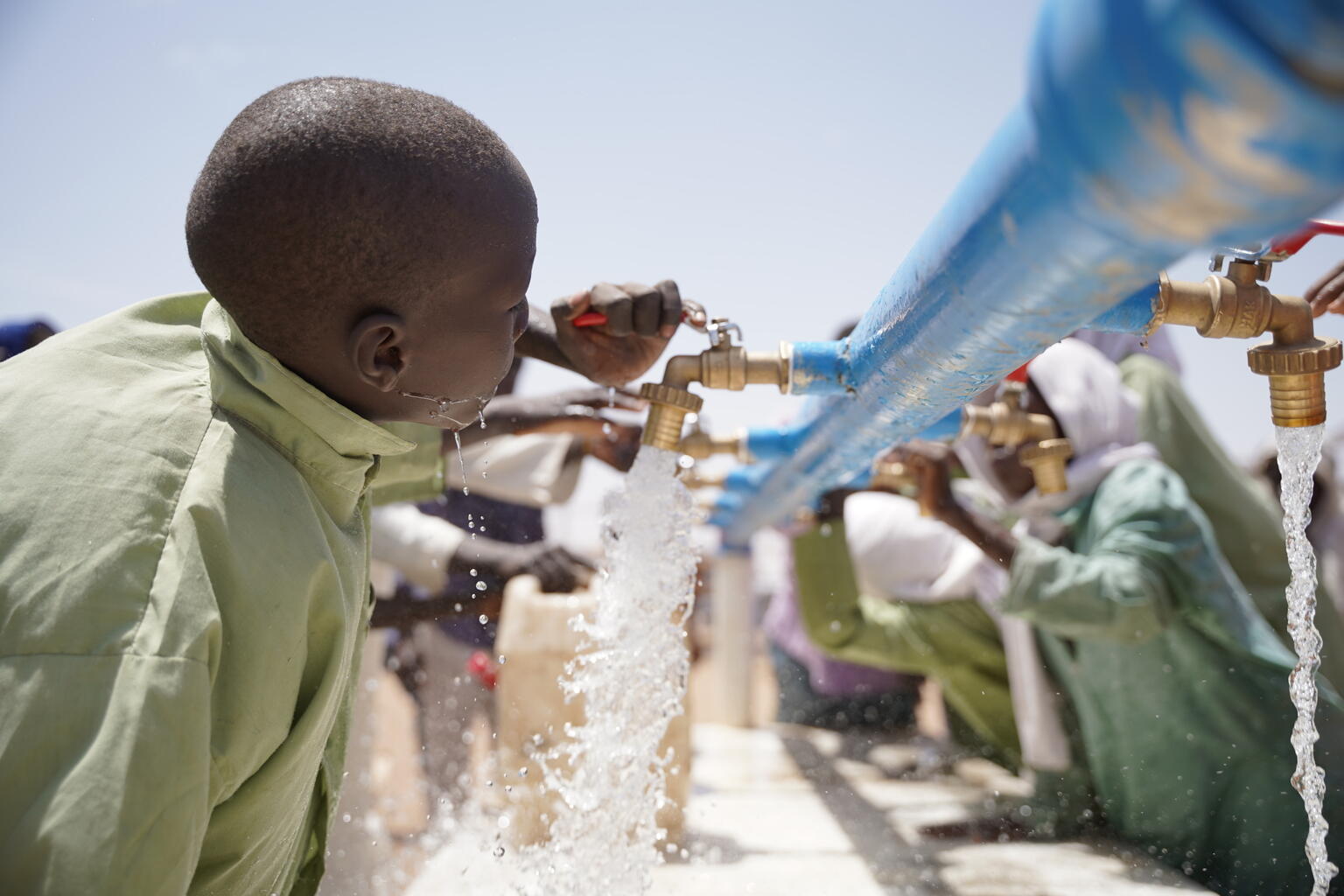Transforming lives with clean water
Globally, a staggering 2.2 billion people lack access to safe drinking water, while almost half of the world’s population lacks access to proper sanitation facilities.
Additionally, an alarming 2 billion people lack basic handwashing facilities with soap, and approximately 419 million people perform open defecation.
Every day, over 700 children under the age of 5 die from diarrhea due to a lack of suitable water and sanitation facilities. In conflict-affected regions, children face an even greater risk, with nearly 20 times higher likelihood of dying from diarrheol diseases compared to the conflict itself.
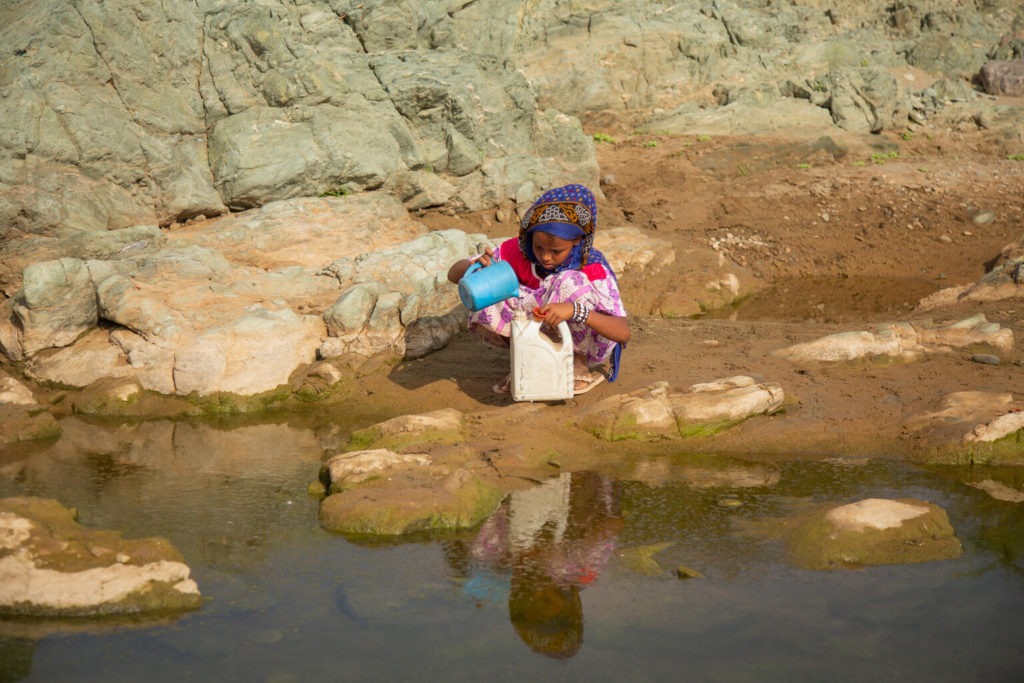
This is where 7-year-old Madina collected unsafe water from a creek in the small village of Gelhanty, Sudan. The water was unclean and contaminated. But now thanks to UNICEF’s committed supporters a solar-powered water system was built which provided the entire community with clean and safe water.
Water and Sanitation in Emergencies
In times of crisis, ensuring access to essential human life-saving needs like clean drinking water becomes vital to preventing further deaths.
Without clean water, the threat of dehydration and waterborne diseases, like cholera and diarrhoea, increases putting the most vulnerable children at further risk.
Those who survive violence and conflict in countries like Gaza, Syria, Sudan or Yemen are still facing a daily battle for survival if they do not get clean water to drink.
The lack of access to clean water, can profoundly impacts children’s health, nutrition, but also their education and cognitive development, affecting various aspects of their lives.
Ensuring access to clean water, proper sanitation and hygiene facilities (WASH) is key part of UNICEF’s preparedness and response plan in case of emergency.
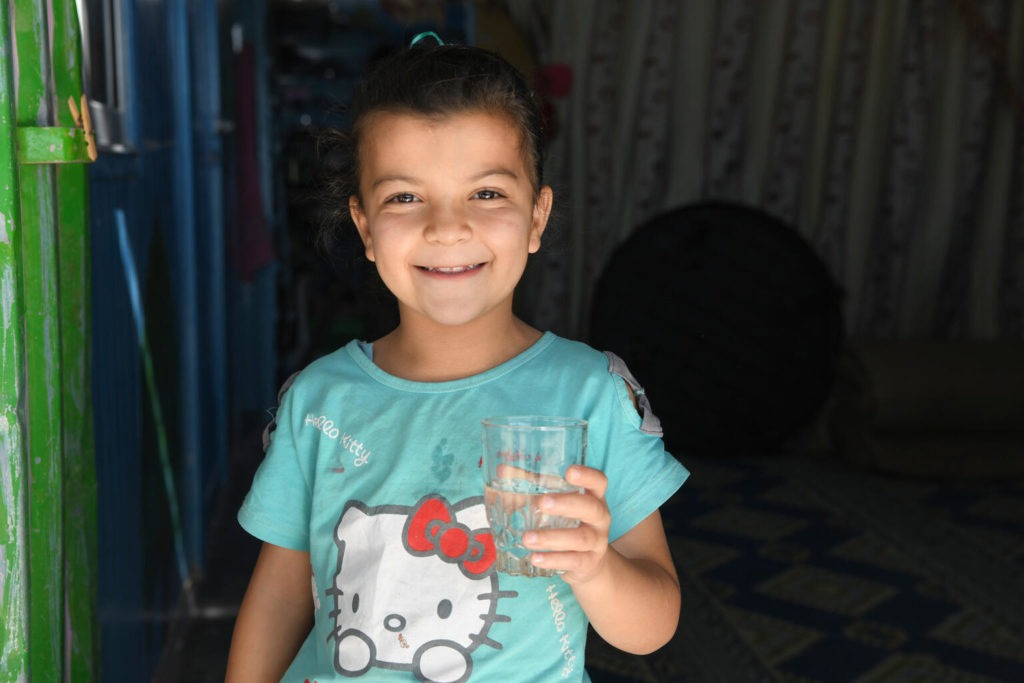
7-year-old Rahaf gets a glass of water at home in Za’atari refugee camp, Syria. “Clean water is the most important service to us here in this refugee camp,” says Ayat – Rahaf’s mother. “We are very grateful to UNICEF for supporting our family over the years and for making this patch of desert a place where we can survive and thrive by giving us the essentials of living like clean water.”
UNICEF’s WASH Response
Operating across more than 60 countries, including those grappling with armed conflicts, natural disasters, and disease outbreaks like cholera, Ebola, and COVID-19, UNICEF delivers critical emergency WASH services thanks to committed donors like you.
These services include:
- Water trucking to provide essential water supplies to affected populations. In Gaza, where water infrastructure has been heavily damaged due to conflict, UNICEF facilitates the transportation of safe drinking water to communities in need.
- Treatment of piped water to ensure it is safe to drink. This is particularly crucial in places where conflicts and displacement often lead to the contamination of water sources which pose significant health risks to children and families.
- Repairing damaged water and sanitation infrastructure to ensure sustained access to clean water and proper sanitation facilities where ongoing conflict has severely damaged water supply networks and sanitation systems.
- Drilling wells or constructing temporary latrines to provide immediate relief to affected communities. This is especially critical in places like Sudan, Gaza, Yemen or Syria where displacement and insecurity have disrupted access to basic water and sanitation services for millions of people.
- Distributing vital hygiene supplies such as soap, hygiene kits, and water purification tablets to promote good hygiene practices and prevent the spread of waterborne diseases.
- Disseminating hygiene education: UNICEF conducts hygiene education campaigns to raise awareness about the importance of hygiene practices and promote behaviour change within communities.
Thanks to supporters like you, UNICEF is there every day to provide life-saving WASH assistance to children and families, wherever it is needed.
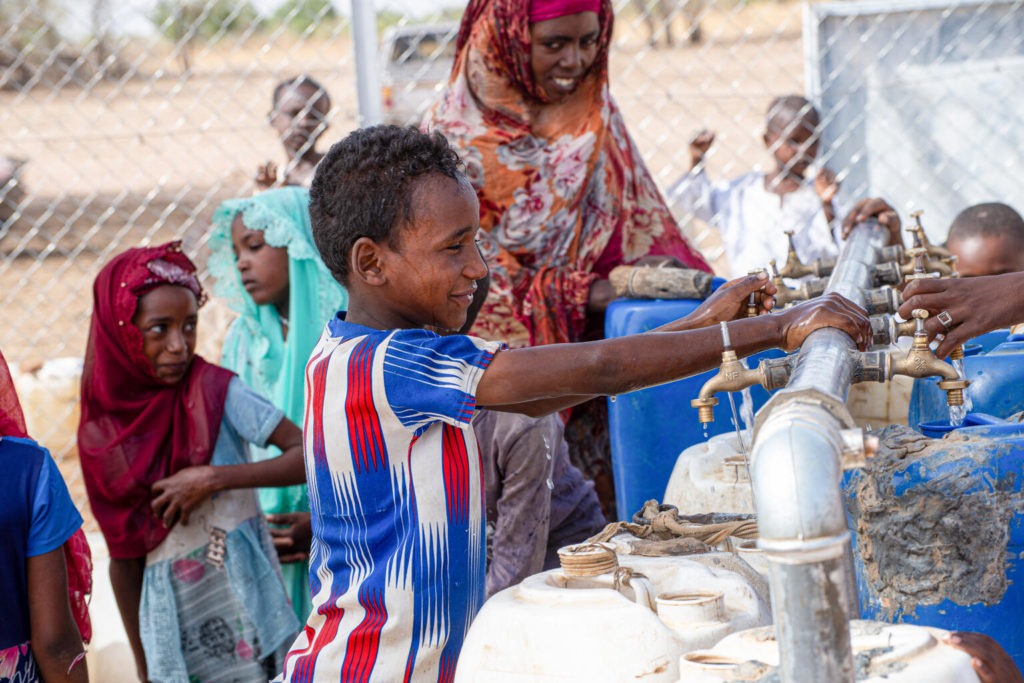
In Rada’a, Yemen, a worker tests a newly installed water pump, powered by solar energy. This project, funded by UNICEF, will provide a reliable water supply to the community, easing the burden for women and children, who traditionally bear the responsibility of fetching water.
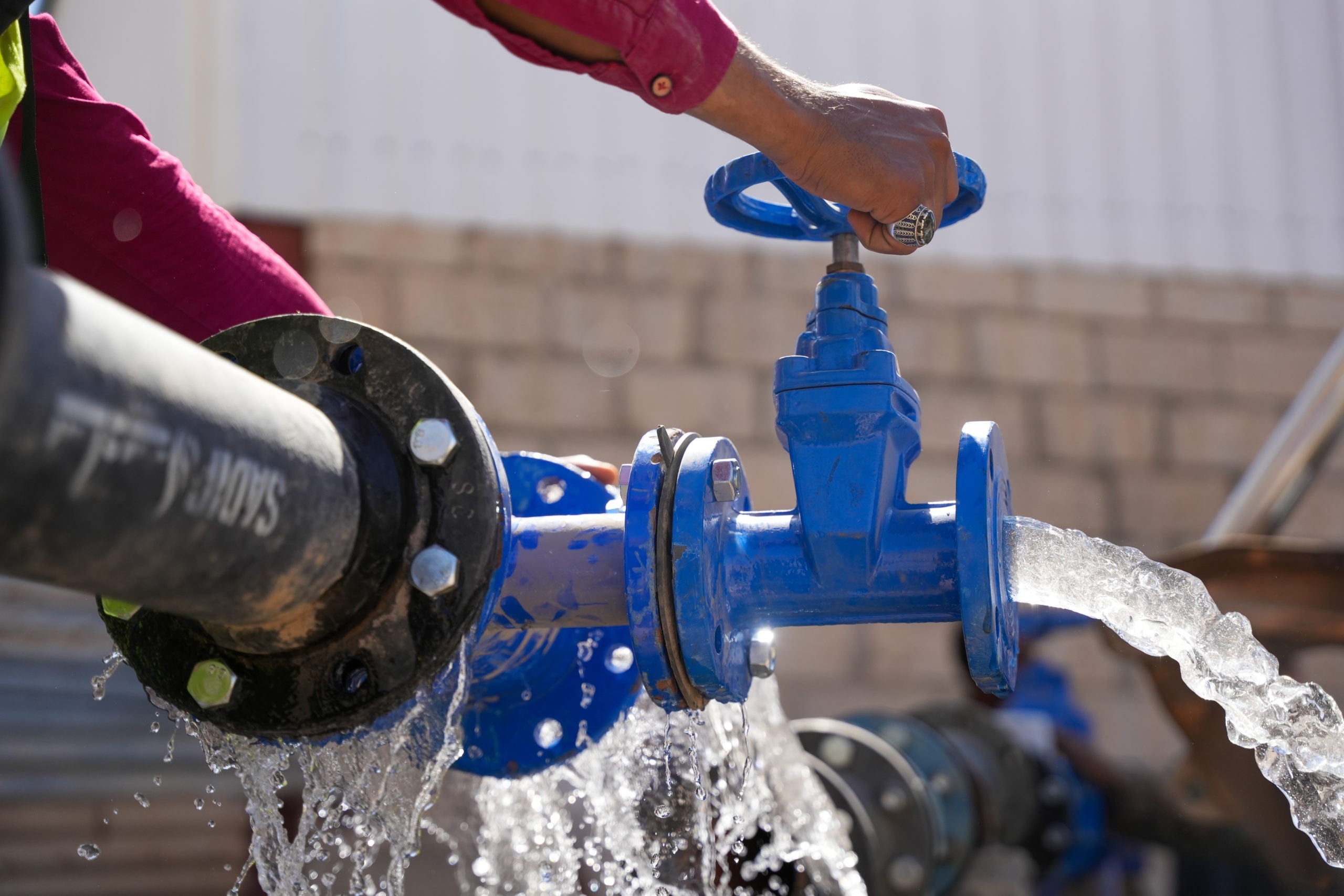
In Rada’a, Yemen, a worker tests a newly installed water pump, powered by solar energy. This project, funded by UNICEF, will provide a reliable water supply to the community, easing the burden for women and children, who traditionally bear the responsibility of fetching water.


